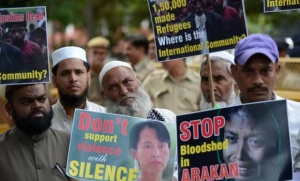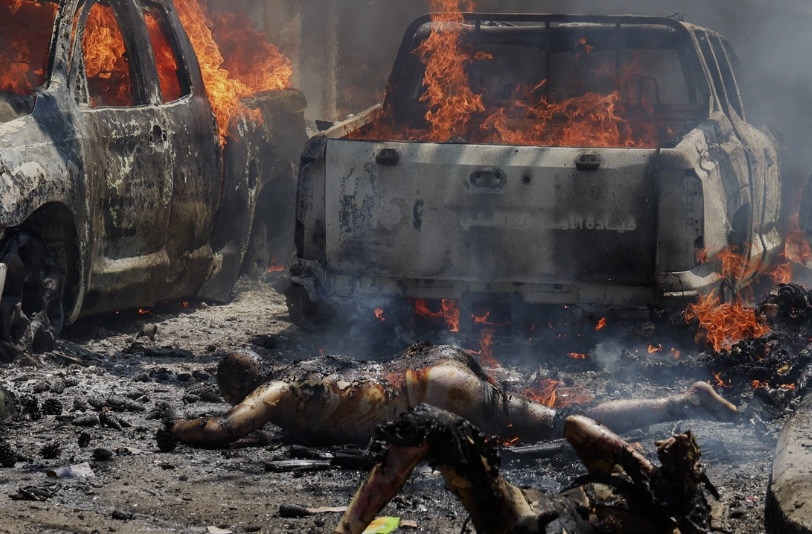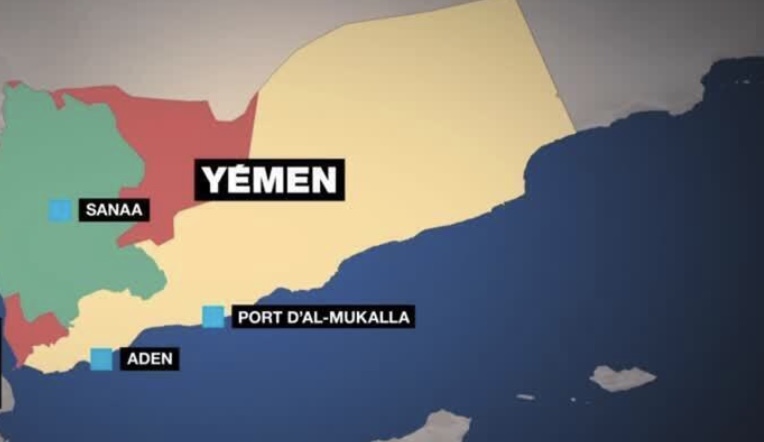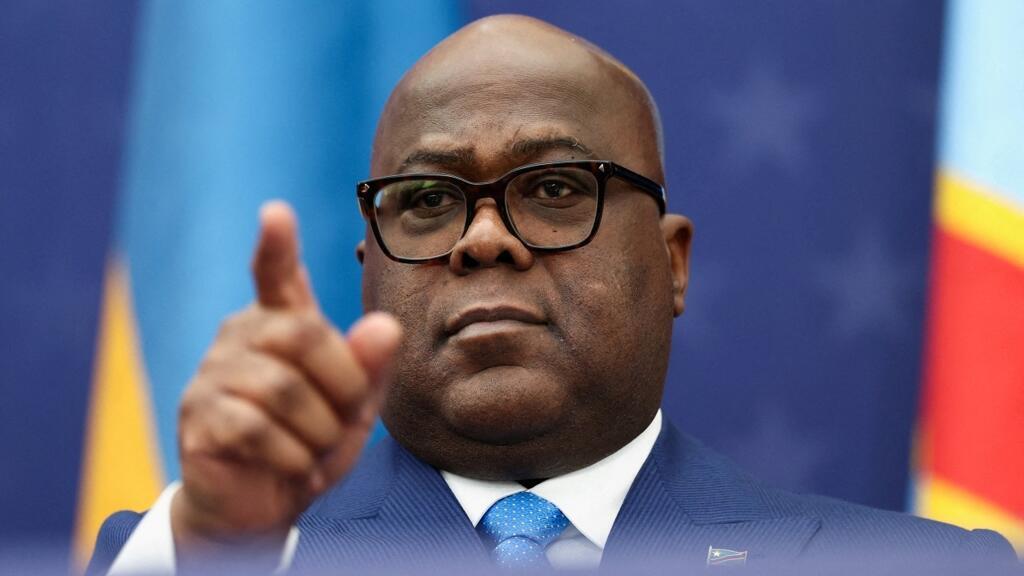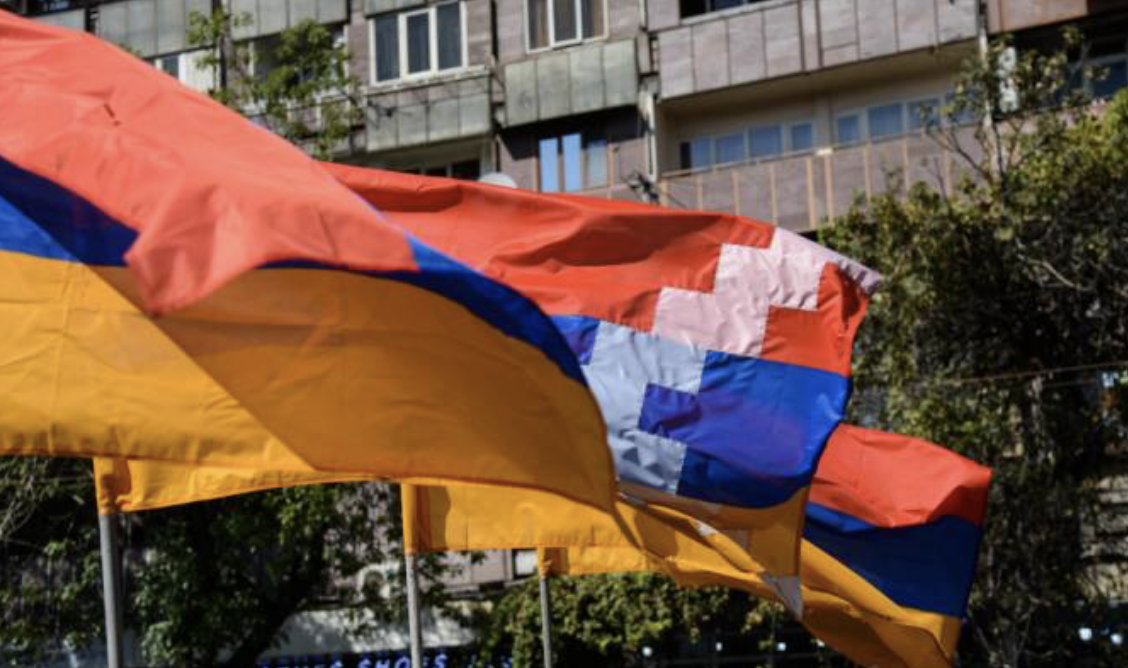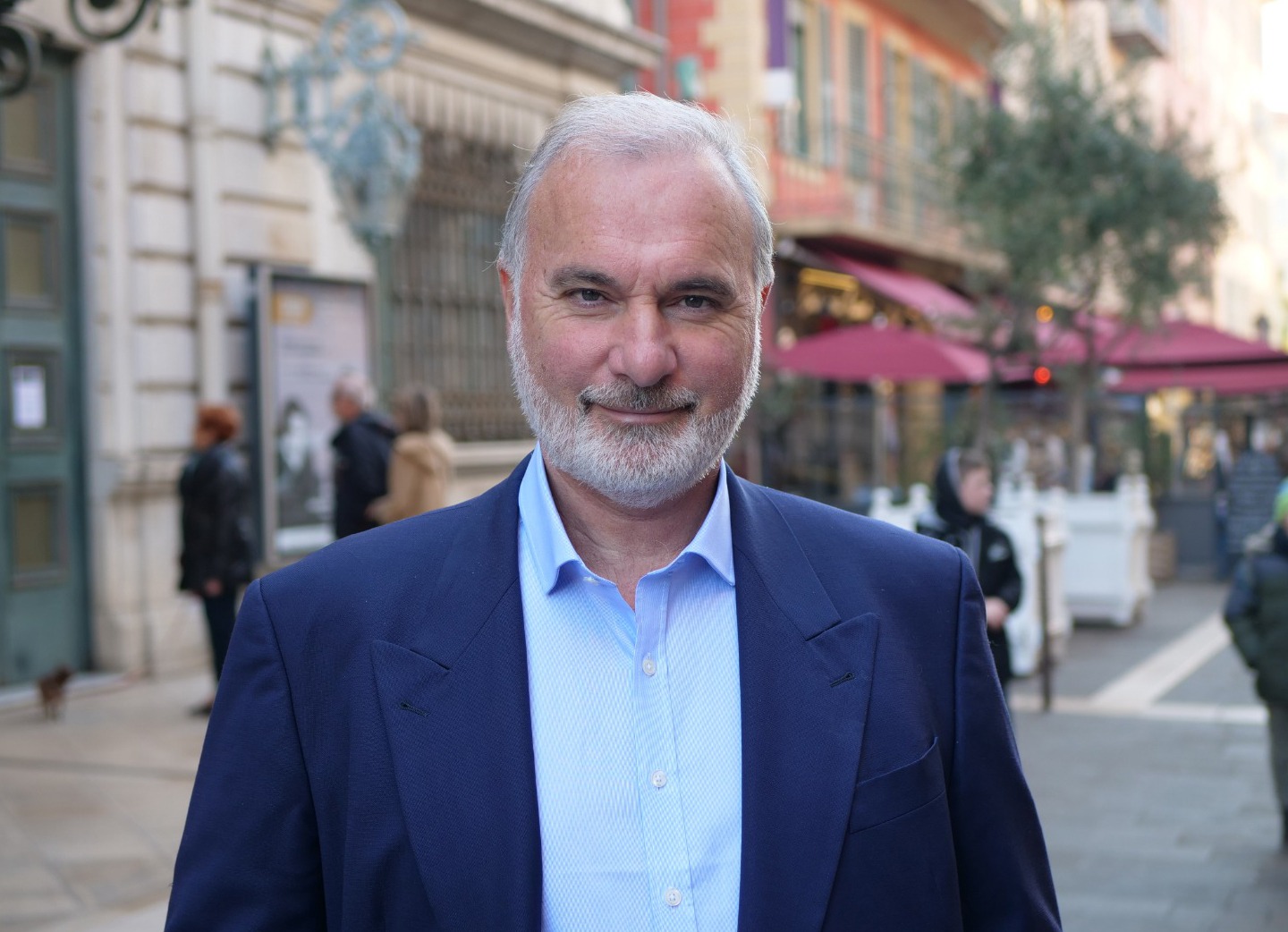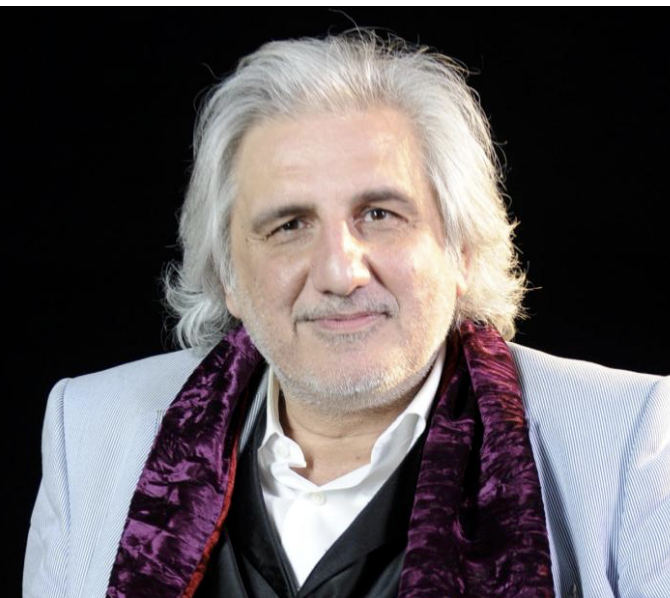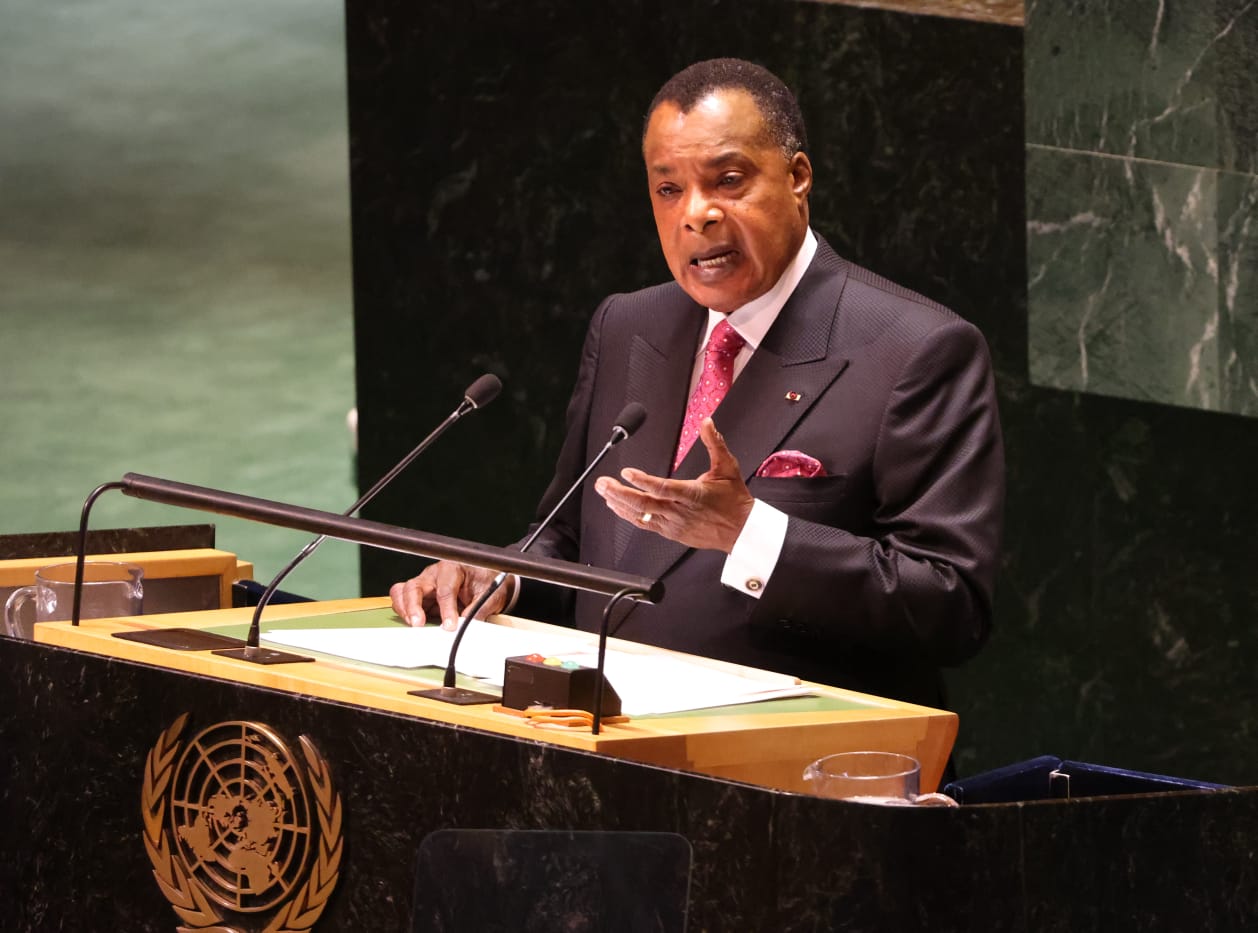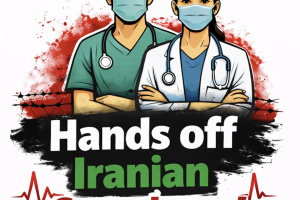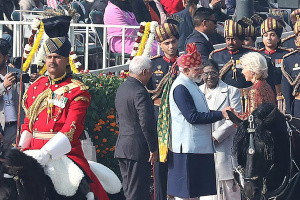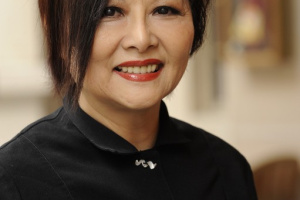Fuyant les violences ethniques en Birmanie, Ali est arrivé dans le camp l’année dernière avec sa famille, qui l’avait préalablement envoyé au Bangladesh afin qu’il continue ses études – ce qui lui était impossible en Birmanie, en raison de son appartenance ethnique. Il bénéficie aujourd’hui du programme d’éducation de l’Agence des Nations Unies pour les Réfugiés, et rêve de devenir architecte. Mais sa vie n’est pas aussi simple. Il rate souvent des jours de cours à cause de la situation dans le camp, où les patrouilles de police indiennes interviennent régulièrement. En septembre dernier, l’une d’elles a ainsi interdit à des hommes du camp de construire une salle de bain, et a arrêté ceux qui ne s’exécutaient pas, dont le père d’Ali.
‘Burmese refugee camp’, as the locals in the Indian Capital New Delhi call it, is couple of kilometres from the Kalandi Kunj intersection in the city heart – a suburban area of predominantly Muslim population. A dusty patch of land, surrounded by heaps of garbage is what the displaced Rohingya Muslims of Myanmar have begun to call home.
In one of the tents, Abdul Karim, in his makeshift office, lists the problems his community is facing in the camp. He is the Zimaydar (Caretaker) of the camp. Karim, like many others, came to the city earlier this year, after fleeing from Myanmar following the ethnic violence against the Rohingyas escalated.
Issues like infants’ dying of snakebites, lack of clean water and sanitation are some of the problems he has to deal with in the camp on a daily basis. “We don’t have bathrooms and it is extremely difficult for the women to wash themselves,” Karim said. Looking away distressfully he added, “We can’t do anything about it. We are dying everywhere and anyhow.”
Sitting next to Karim is Ali Johar, an 18-year-old refugee from North Myanmar. Being the only one from the camp to have received any formal education, Ali’s life has been a struggle between hope and despair, between defiance and surrender. Currently being educated under the UNHCR Programme, he compromises on other essentials of life in order to save money required for travelling to his new school.
Suspecting that his son might be denied admission to a school, Ali’s father had given him a Buddhist name: Mong Thain Sowe – meaning ‘refined gold’. “Back home, we were not allowed to study and if by any chance we were admitted to school we were expelled on the basis of poor grades.” Ali claimed that the Rohingyas are intentionally given bad grades.
“How can we progress as a people if we are not educated? Education is the backbone of a nation,” he said; while his friends looked at him with awe, unable to understand his English. “As a child I wanted to join the Army, but now I want to become an architect instead,” he added.
In 2005 Ali travelled to neighbouring Bangladesh at the persistence of his maternal grandmother after his uncles were forcibly made to work as coolies by the Myanmar Army while fighting the anti-government insurgents in the hilly regions of the country.
In Bangladesh, Ali pursued his studies in Uttaran Model School until the tenth grade (around 15 years of age). This is when the anti-Muslim rioting started in his hometown forcing his seven siblings and parents to join him in Bangladesh. From there, the family decided to travel to India as the Bangladeshi government started a crackdown on Rohingya refugees as an effort to counter the influx of the refugees.
After paying around 6 000 Bangladeshi takas (around 56€) per person, the family with the help of agents had managed to reach the border. It took them 2 000 Indian rupees (around 25€) per person to cross over the Indo-Bangladesh border.
Now in India for more than a year, the family is divided, with his mother and three siblings staying in a camp in the Northern Indian state of Haryana. “There is not enough space for all of us here” Ali said. Housing around 200 people, the makeshift camp is the property of Delhi-based Zakat foundation that has taken the responsibility of settling 50 families after the anti-Rohingya violence in Myanmar’s Rakhine region in 2012. “We want to go back home but we won’t be allowed to enter,” Mohammad Shakir, a close friend of Ali’s, said.
This year in September, an Indian police patrol stopped some of the men from building a bathroom stating that the land next to Zakat’s foundation’s plot belongs to the government of India’s Northern state of Uttar Pradesh. On the same day, two men visited the camp and tried to stop the work by intimidating the camp residents which resulted in a commotion. Following this, the Indian police rounded up all the men in the camp and arrested three. Two of the arrested men included Ali’s father and an elder brother.
“I missed classes today as I had to file the bail application,” Ali said without regret. “My father didn’t like me missing classes. But this is our life. We are hounded everywhere,” he added.





